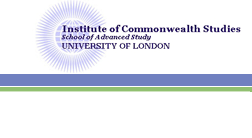|
The Media South Asia project was set up in November 1997 under the auspices of the Institute of
Development Studiesat the University of Sussex in the UK and with the support of the Ford Foundation. It moved to the Institute of Commonwealth Studies at London University in June 2007. Professor James Manor has been the project's academic advisor throughout this period.William Crawley and David Page are Co-Directors of the project.
Media South Asia was marked from the beginning by close collaboration between broadcasters, programme makers, researchers, academics and journalists from five south Asian countries - India, Pakistan, Bangladesh, Sri Lanka and Nepal.
In the first phase, the project examined the nature of the satellite television revolution, which began in the early 1990s and transformed TV viewing in South Asia. This phase drew on an extensive network of research associates and culminated in the publication of a book and a documentary film in December 2000. The book, authored by David Page and William Crawley, is entitled 'Satellites over South Asia: broadcasting, culture and the public interest' . The film, which was directed by Nupur Basu, is called 'Michael Jackson comes
to Manikganj'.
In the second phase, the project publicised the results of the research and promoted a debate about broadcasting
futures in all the main South Asian countries. It also held thematic workshops and funded training
and attachments on specific themes of relevance to the future development of the media. These themes included innovation in terrestrial broadcasting, media monitoring and advocacy, community radio, and the communication strategies of NGOs.
During this phase, the Media South Asia project became part of an informal network of organisations with a commitment to pursuing public interest issues in the field of broadcasting. These include the Centre for Advocacy and Research (CFAR), Voices , The Hoot, Panos South Asia , Himal Association, Nepal Forum of Environmental Journalists (NEFEJ), Television Trust for Education Asia - Pacific (TVEAP) , Bangladesh Centre for Development, Journalism and Communication (BCDJC), Proshika (Bangladesh),Uks (Pakistan), Aurat Foundationand a number of other civil society organisations, broadcasters and Institutes of media learning.
In the third phase, the Media South Asia project has been focussing on research into Media Policy and Law in South Asia. After carrying out a scoping study in four South Asian countries between 2007 and 2008, it began a more extensive study of Media Policy and Regulation in Sri Lanka with a grant from the Ford Foundation in 2009. A fuller account of this research work, which was completed in 2012, is available under Media Policy and Law. Other relevant reports, articles and lectures are to be found under Documents.
|











